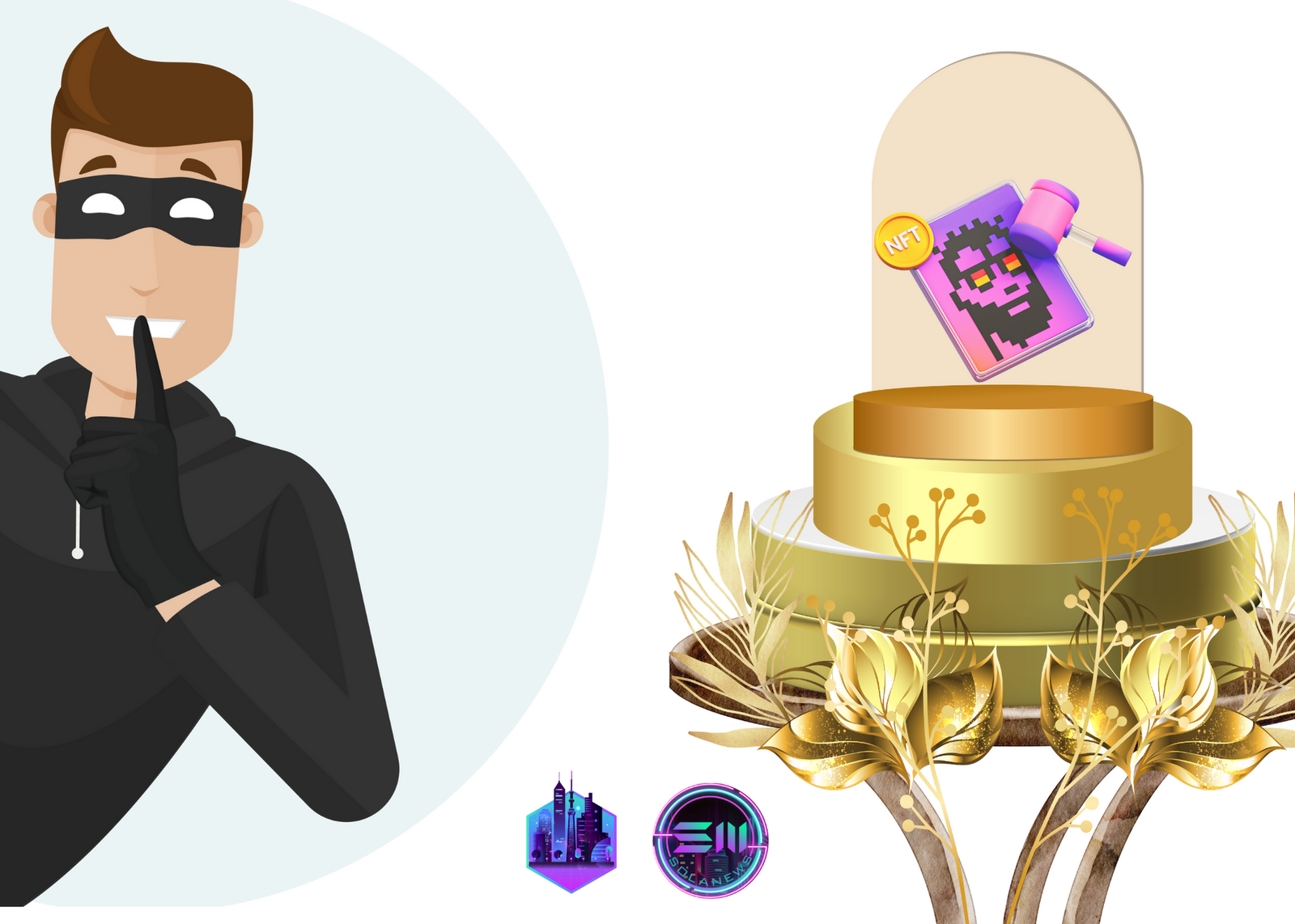TL:DR:
- NFTs are becoming a target for hackers and scammers in the Web3 space.
- To prevent NFT theft, due diligence is key along with best practices such as revoking unneeded permissions, segregating NFTs into different wallets, and using secure wallets.
- If NFTs are lost, marketplaces can blacklist the NFTs and victims can report the theft to databases to help others stay safe.
- Tools such as hardware wallets, revoke.cash, and browser extensions can provide added security to NFTs.
- If a hack or scam occurs, reporting it to law enforcement and using analysis software such as Storyline can help trace stolen NFTs.
- Reaching out to NFT marketplaces or asking the NFT project to burn the stolen token may be the final solution.
Covering your assets
As non-fungible tokens (NFTs) continue to grow in popularity, they have also become a target for hackers and scammers in the Web3 space. Millions have been lost through various attacks, making NFT security a top priority. To prevent NFT theft, experts recommend due diligence, periodically checking and revoking unneeded permissions, and using secure wallets such as hardware wallets.
Non-fungible tokens, or NFTs, are unique digital assets that are stored on a blockchain. Unlike traditional cryptocurrencies, NFTs can’t be exchanged for an equal value as each one is distinct and holds a specific value that is determined by the market. The use cases for NFTs are vast, ranging from collectibles to virtual real estate and even digital art.
However, with the growing popularity of NFTs, the risk of theft is also increasing. NFTs can be stolen through various means, including hacking into exchanges where NFTs are stored, or through phishing scams that trick individuals into revealing their private keys. The value of NFTs makes them a prime target for cybercriminals, who can easily sell them on the black market for a profit.
Gone for good but why
Once NFTs have been lost, victims can report the theft to databases and use analysis software to assist investigators in tracking the stolen assets. In addition, tools such as revoke.cash and browser extensions can provide added security. If all else fails, reaching out to NFT marketplaces or asking the NFT project to burn the stolen token may be the final solution.
Why would NFTs be stolen in the first place? NFTs are stolen because they are valuable, both in terms of their worth in the market and the emotional value they hold to their owners. They are also easily transferable, which makes it easier for cybercriminals to make a profit by selling them on the black market. Furthermore, NFTs are stored on a blockchain, which can be vulnerable to hacks.
To mitigate the risk of theft, it is important for NFT owners to properly store their assets and to stay vigilant against potential threats such as phishing scams and hacks. This can be done by using secure storage solutions, such as hardware wallets, and by being cautious when providing personal information or private keys. Additionally, it is crucial to only purchase NFTs from trusted and reputable sources to reduce the risk of fraudulent purchases.
Due Diligience is important
In an interview Ronghui Gu, the CEO of blockchain security firm CertiK, stressed the importance of due diligence in preventing NFT theft. He also recommended segregating NFTs into different wallets and using secure wallets that interact minimally with applications. Michael Pierce, the CEO of Web3 security firm NotCommon, suggested buying hardware wallets directly from the manufacturer to minimize the risk of tampering.
Senior Strategist Mohamed Issa from data firm Chainalysis also spoke about the growing challenge NFT transactions present for cryptocurrency investigation. He believes that NFT holders can protect their investment with tools like Storyline, an analysis software created by Chainalysis. Meanwhile, Alvin Kan, BNB Chain growth operations director, highlighted the use of tools such as revoke.cash and browser extensions to provide risk warnings before signing contracts. He also emphasized the importance of reaching out to NFT marketplaces in the event of a hack or scam.
NFTs are unique digital assets that are becoming increasingly popular and are being used for a wide range of purposes. However, the growing popularity of NFTs also means that they are becoming increasingly vulnerable to theft. To reduce the risk of theft, NFT owners must take appropriate precautions, such as using secure storage solutions and only purchasing NFTs from trusted sources.

Thanks for reading our Solanews content, remember to follow our social media channels for more!

